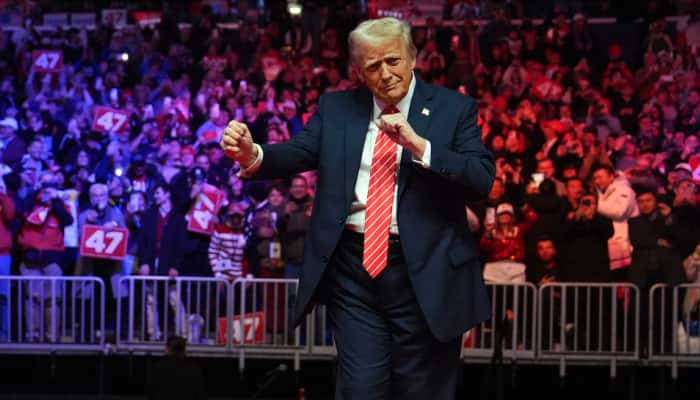As election looms, Myanmar trials target dissent
Every Tuesday, the moss-covered redbrick courthouse in Tharrawaddy erupts into activity for a weekly ritual: the mass trial of student protesters.
Trending Photos
)
Tharrawaddy: Every Tuesday, the moss-covered redbrick courthouse in Tharrawaddy erupts into activity for a weekly ritual: the mass trial of student protesters.
They are among a growing number of people caught in a crackdown on dissent as Myanmar heads towards a historic election in November, when the military-backed ruling party will compete with the ascendant National League for Democracy (NLD) party of Nobel laureate Aung San Suu Kyi in the first free national vote in 25 years.
The country will face a tense three months after the vote as elected politicians - and the still-powerful military - tussle over who will become president. Suu Kyi has called for international vigilance during this period.
"A smooth and tranquil transition is almost more important than a free and fair election," she said in a recent campaign stop.
Rights groups say the signs are not good, with Myanmar authorities increasingly bringing cases against students, land rights campaigners and other activists, who also complain of increased monitoring by the police`s feared Special Branch.
It`s a dramatic change from the mood when the military relinquished full power in 2011, which saw about 1,300 political prisoners released as part of reforms.
In early 2014, there were just 29 political prisoners, most involved with ethnic insurgencies, according to the Assistance Association for Political Prisoners (AAPP), a Yangon-based monitoring group.
Now, 108 people are imprisoned, and 460 are on trial, the AAPP says.
Myanmar is still a far cry from the days of military rule, when the junta jailed and tortured opponents at will, said Aung Thane, a prominent lawyer defending many of the latest detainees.
"Now that we have this constitution and a parliament, they don`t act as carelessly as before," he said. "If they arrest you, they file charges to the court within 24 hours. They work within the law as much as they can. But the oppression is the same."
For rights groups, the crackdown conveys a simple message: the military still runs Myanmar`s political transition and brooks limited dissent.
"The people arrested and detained are being used as examples to intimidate other students and activists out of protesting," Bo Kyi, a co-founder of AAPP, told Reuters.
The military and its allies still dominate politics.
President Thein Sein is a former general and most members of his ruling Union Solidarity and Democracy Party (USDP) are ex-military.
The military-drafted constitution gives the armed forces 25 percent of seats in parliament and the three ministries overseeing security, including the home affairs ministry, headed by Lieutenant General Ko Ko.
Home affairs, the most powerful bureaucratic tool for curbing dissent, controls the police, Special Branch and the General Administration Department (GAD), a superbody that runs unelected local governments.
Ko Ko did not respond to Reuters` requests for comment. Information Minister Ye Htut and Zaw Htay, a senior official at the president`s office, declined interview requests.
Outside Tharrawaddy court, as a Special Branch officer photographed and recorded his interview with Reuters, student leader Nanda Sit Aung, 35, said he could face more than 30 years in prison.
He was arrested in Yangon by plainclothes Special Branch officers on March 27. "They didn`t say who they were," he said. "They just told me: `get in the car`."
Nanda Sit Aung said he was questioned all night over a cross-country student march the police broke up in Letpadan town, just north of Tharrawaddy.
Police officers from many townships have summoned him from his cell to face charges including illegal assembly and inciting people against the state. With every township the students marched through counting as at least one separate offence, Nanda Sit Aung said he faces a total of 68 charges.
At least 15 others face similar multiple counts of the same charge, said Bo Kyi of AAPP, enabling "authorities to prolong the sentences of those detained and exclude them from public life and activism in the lead up to the elections".
The march, by around 200 students, had set out from the central city of Mandalay bound for Yangon.
On Feb. 28, 11 days after they reached Letpadan, still about 130 km (80 miles) north of the former capital, Home Minister Ko Ko issued a public statement: the students shall march no further.
That prompted township authorities to draft an undated authorisation for police to put down the protest, said Thiha, the township chief whose position comes under the GAD and who showed a copy of the authorisation to Reuters.
On March 10, amid confrontation between protesters and police, local authorities signed the letter, Thiha said. Police charged and scores of students were beaten and arrested.
For Nanda Sit Aung, there was only one lesson to draw from the crackdown.
"Before, the government claimed they were reforming and they were releasing prisoners," he said. "But it seems now they`re backsliding on democracy."
Stay informed on all the latest news, real-time breaking news updates, and follow all the important headlines in india news and world News on Zee News.
Advertisement
Live Tv
Advertisement







)
)
)
)
)
)
)
)
)
)
